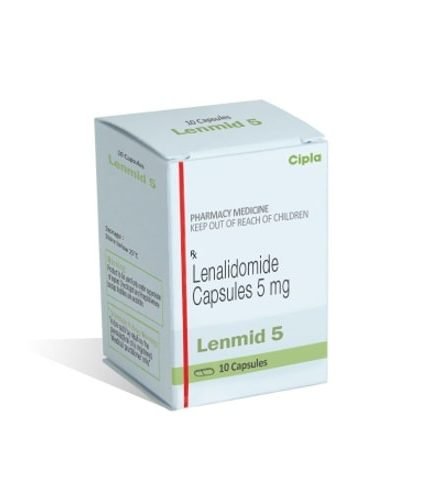Introduction:
All antibiotics are essential when treating bacterial infections. Strong medications are required to address the issue. Doxycycline and Augmentin are frequently administered in this situation. The composition, usage, and impact of these are all distinct.
Augmentin’s main ingredients are clavulanic acid and amoxicillin, which can help cure infections brought on by bacteria that are resistant to antibiotics. For bacterial infections that are difficult to treat, the two antibiotic medications are the first line of treatment.
Importantly, viral diseases like the flu and the common cold are not treated by these medications. Overuse of antibiotics can cause antibiotic resistance and eventually reduce their effectiveness.
This generic medication is used to prevent malaria, treat severe acne, and treat bacterial infections. It is also marketed under the names Acticlate, Doryx, and Doryx MPC.
This is available in three oral forms: liquid suspension, tablet, and capsule. Additionally, only medical specialists may administer the injectable solution.
What Is Doxycycline?
This is used to treat infections caused by bacteria in a variety of body areas. Additionally, rosacea-related pimples and abscesses—also referred to as adult acne or acne rosacea—are treated with it.
Additionally, when determined by your physician, capsules are used to treat anthrax infections following potential exposure, prevent malaria, and treat other illnesses.
This medication falls within the category of tetracycline antibiotics. It either eliminates germs or stops them from growing. Colds, the flu, and other viral diseases, however, will not be treated by this medication.
- Powder for Suspension
- Capsule
- Tablet
- Capsule, Extended Release
- Syrup
- Tablet, Delayed Release
Travelers visiting regions where malaria is prevalent can also use it as a prophylactic medication. It can also be given for the treatment of periodontitis and rosacea.
This is often taken as a tablet or drink, although in certain situations, a hospital injection may be used. Following a doctor’s recommendations is crucial when taking doxycycline since misuse might result in adverse effects or antibiotic resistance.
Doxycycline frequently causes nausea, vomiting, diarrhea, and excessive sensitivity to sunlight, which might result in sunburn. Additionally, as they might lessen their efficiency, it is advised to avoid taking them with dairy products or antacids.
As a result, it is a frequently administered antibiotic. To treat bacterial infections, it is given. Based on NIH research, it is effective.
It goes after bacterial ribosomes. When the bacterium is attacked, it becomes weaker. Thus, the bacteria’s capacity to influence the body is diminished. As a result, fewer infections occur.
What Is Augmentin?
This medication is prescribed to treat certain bacterial infections. The medication is available as an oral tablet and an oral liquid solution. Typically, two or three doses are given each day.
- Lower Respiratory Tract Infections
- Ear Infections
- Sinus Infections
- Urinary Tract Infections
- Skin Infections
This is clavulanic acid in its form. This is a member of the class of medications known as penicillin antibiotics.
This page explains Augmentin’s strengths, doses, and usage instructions.
It is frequently utilized because of the clavulanic acid component when illnesses are caused by bacteria that are resistant to other antibiotics.
This is an oral medication that is usually taken with meals to reduce the likelihood of stomach distress.
Like other antibiotics, this should be used exactly as directed and for the whole duration of therapy, even if symptoms subside before the prescription is finished. By doing this, the growth of microorganisms resistant to antibiotics is inhibited.
This frequently causes diarrhea, nausea, vomiting, and potential allergic responses, including skin rashes. Serious adverse effects are uncommon, however, they might include severe allergic responses or liver problems.
Antibiotic production has long been associated with this firm. It combats illnesses caused by bacteria. Its primary purpose is to inhibit the development of microorganisms. Targeting and recognizing the bacterial cell does this. All Augmentin pills, including Augmentin 625 mg, are beneficial. The majority of your suffering is managed by these medications.
What Is Doxycycline Used For?
In addition to treating the following bacterial infections, this antibiotic is frequently used to prevent malaria, enhance tooth attachment, and lessen gum pockets in patients undergoing scaling and root planning for gum disease.
- Disorders caused by tick bites, such as rickettsia infections
- Some diseases are contracted through sexual contact
- Sinusitis, pneumonia, and bronchitis are examples of respiratory tract infections.
- Specific diseases of the eyes
- Severe acne
- An illness known as the plague
- The cholera virus
- A disease known as anthrax
- Animal-transmitted illnesses, infections for which penicillin is ineffective, and parasite-caused infections
Depending on which bacteria are causing the infection, this might not be suitable for any of the diseases mentioned above. In certain areas, bacteria could have become resistant to doxycycline, which would reduce its effectiveness.
Your healthcare professional may decide to utilize this for other conditions.
Particularly for visitors to regions where malaria is prevalent, this is occasionally recommended as a malaria prophylaxis medication.
Antibiotic misuse can result in antibiotic resistance, which makes subsequent infections more difficult to cure. Always finish the entire course of medicine as prescribed by your doctor.
What Is Augmentin Used For?
This antibiotic’s amoxicillin, is of the penicillin type, and clavulanic acid keeps certain bacteria from developing amoxicillin resistance. Because of this combination, this is more successful than amoxicillin alone at treating a wider variety of bacterial illnesses.
Bacteria are killed by amoxicillin because it prevents them from forming cell walls. Amoxicillin’s efficiency is increased with clavulanic acid, which stops bacteria from breaking it down. This is especially true for bacteria that manufacture an enzyme that would render amoxicillin useless.
Always follow your doctor’s instructions when taking Augmentin, and ask them any questions or concerns you may have regarding its use.
Usually, this is recommended when it is thought that germs resistant to other antibiotics are the source of the infection.
It’s crucial to continue the entire course of treatment, even if symptoms subside before the medicine is finished.
What Drugs Interact With Augmentin and Doxycycline?

- Antacids
These are over-the-counter drugs that eliminate stomach acid and relieve symptoms such as upset stomach, heartburn, acid reflux, and indigestion. They function by increasing stomach acid’s pH, which lessens its acidity and reduces esophageal and stomach lining discomfort.
In order to counteract adverse effects and lessen constipation or diarrhea, they blend several active substances. People on a salt-restricted diet or those with high blood pressure should use them with caution since they contain sodium bicarbonate, which can elevate sodium levels.
Although they are usually safe to take for a brief period of time, if you frequently get heartburn or indigestion, or if the symptoms don’t go away after taking antacids, it might be a sign of a more serious illness such peptic ulcers or gastroesophageal reflux disease (GERD). When this occurs, a medical professional might suggest better courses of action.
Follow the directions on the packaging or your doctor’s advice while using antacids.
Because variations in stomach acidity might impair medications or meals, avoid taking antacids too soon after these times.
- Warfarin
The anticoagulant drug warfarin is also referred to as a blood thinner. By lessening the blood’s capacity to coagulate, it helps shield the veins and arteries against dangerous blood clots. Deep vein thrombosis (DVT), pulmonary embolism, heart attack, and stroke are among the dangerous illnesses that can result from these clots.
Warfarin stops several vitamin K-dependent clotting factors from working in the liver. Because vitamin K is necessary for the synthesis of these clotting components, warfarin helps prevent clot formation by inhibiting its effect.
Since the INR determines the warfarin dosage and might differ from person to person, routine monitoring is crucial.
Due to the possibility of birth problems, this is usually not advised during pregnancy, especially in the first trimester. Discuss alternate therapies with your healthcare professional if you are or want to become pregnant.
Keep a medical alert card or bracelet on you to let medical professionals know you are taking warfarin in case of an emergency.
- Methotrexate
This drug is used to treat many different illnesses, but mostly ones that include inflammation or aberrant cell proliferation. In addition to being utilized in some forms of cancer treatment, this immunosuppressive medication can assist in treating illnesses where the immune system becomes hyperactive.
This functions by blocking the activity of the dihydrofolate reductase enzyme. Folic acid, which is required for DNA synthesis and cell division, is produced in large part by this enzyme. Methotrexate slows down cell development by interfering with this mechanism, especially for fast-growing cells like cancer cells or immune cells that contribute to inflammatory disorders.
For autoimmune disorders, this can be used in small dosages, usually once per week. When treating cancer, substantially larger dosages are utilized.
Despite its great efficacy, it needs to be closely watched because of possible adverse effects, particularly on the liver, lungs, and bone marrow. If methotrexate is recommended to you, be sure to carefully follow your doctor’s instructions and show up for any follow-up sessions so that side effects may be monitored.
- Barbiturates
Particularly in patients who do not react to conventional anticonvulsant drugs, barbiturates such as phenobarbital are used to treat specific kinds of seizures.
Although short-acting barbiturates were formerly often recommended to treat insomnia, their usage has decreased in recent years due to the possibility of dependence and overdose. For sleep disturbances, medications such as amobarbital and secobarbital were utilized.
Due to the availability of safer substitutes like benzodiazepines, barbiturates are no longer as frequently recommended for the short-term treatment of anxiety.
However, their usage has declined in favor of safer drugs like benzodiazepines because of their high risk of dependency, overdose, and hazardous drug interactions. It’s important to pay great attention to your doctor’s instructions and be aware of the possible hazards if you are prescribed a barbiturate.
- Probenecid
Probenecid increases uric acid excretion in urine by preventing the kidneys from reabsorbing it. The breakdown of purines, which are compounds present in some meals and drinks, produces uric acid as a byproduct.
High uric acid levels can cause uric acid crystals to develop in the joints, which can result in gout, a painful disorder. Probenecid helps to prevent the formation of urate crystals in joints and tissues and reduces the risk of gout episodes by encouraging the excretion of uric acid.
Most frequently, this is used to treat chronic gout, especially in those who flare up frequently. By lowering blood levels of uric acid, it lessens the chance of gout episodes and chronic joint damage.
- Allopurinol
Inhibiting the enzyme xanthine oxidase, which transforms purines into uric acid, is how allopurinol functions. Allopurinol reduces uric acid synthesis by inhibiting this enzyme. This lessens the likelihood that uric acid crystals, which cause gout-related discomfort and inflammation, may form in the joints and tissues.
Generally speaking, allopurinol should be begun at a low dose, particularly in gout patients, to prevent gout flare-ups. To control a flare-up that can occasionally happen when uric acid levels fall too rapidly, your doctor may additionally recommend an anti-inflammatory medication, such as colchicine.
Although it is uncommon, an allopurinol overdose can result in symptoms including diarrhea, nausea, vomiting, and lightheadedness. Medical help must be sought right away if an overdose is suspected.
- Digoxin
Digoxin improves the heart’s ability to pump blood by increasing the heart muscle’s contraction power. For people who suffer from heart failure, when the heart finds it difficult to pump enough blood to satisfy the body’s demands, this is very helpful.
This is used to treat chronic heart failure, particularly when the heart’s capacity to pump blood is compromised. It improves symptoms like exhaustion and dyspnea by increasing the effectiveness of the heart’s contractions.
Digoxin must be taken at the same time every day, just as directed. It may be taken either way, but in order to keep blood levels steady, it’s crucial to take it consistently with or without meals.
This can have several harmful side effects that can be reversed with potassium supplementation, especially if the patient has insufficient potassium.
Despite its limited therapeutic range, which means that too much of the medicine in the body might have hazardous consequences, it can be quite effective.
- Oral Contraceptives
Also referred to as mini-pills, these are devoid of estrogen and solely contain progestin.
They are frequently advised for women who are unable to take estrogen, such as nursing mothers or those with specific medical issues.
To be successful, these tablets must be taken daily at the same time.
Sperm find it more difficult to pass through the cervix and reach the egg when the progestin in the pill thickens the mucus there.
If fertilization takes place, the hormones also thin the uterine lining, which lowers the chance of implantation.
The risk of major cardiovascular issues, including blood clots, heart attacks, and strokes, is greatly increased while smoking while using oral contraceptives, particularly for women over 35.
Oral contraceptives should be avoided or used carefully under a doctor’s supervision by women who have uncontrolled high blood pressure, liver illness, breast cancer, or unexplained vaginal bleeding.
The Action Mechanism
To work, Augmentin targets the bacterial cell wall. The components it contains shield the body’s healthy cells. It exclusively impacts the body’s unidentified cells.
Bacterial cells are often these unidentified cells. It is made up of components that are specifically designed to attack bacterial cells. This makes it a popular option. Any patient can get this advice.
This company’s Augmentin medicines are safe for consumption by anybody with a bacterial illness. A variety of microorganisms can react with it.
Even in cases when ovulation does place, the thicker cervical mucus maintains a barrier that keeps sperm from getting to the egg in the fallopian tube.
Due to the thinner uterine lining, the fertilized egg would have a harder time implanting and growing if it were to find its way to the uterus.
This reduces the likelihood that the fertilized egg will reach the uterus for implantation and that the sperm and egg will meet in the fallopian tubes.
By preventing an egg from being fertilized or implanted, even in the case that fertilization does take place, oral contraceptives successfully prevent pregnancy.
What Is The Dosage Of Doxycycline?
The severity of the illness, the patient’s age, any underlying medical conditions, and the disease being treated all affect the doxycycline dose.
Doxycycline should ideally be taken with a full glass of water to prevent esophageal discomfort, and you should avoid lying down right after taking it.
Skip the missed dosage and take the next one at the scheduled time if the next dose is almost due.
The particular infection and how well it responds to the antibiotic will determine how long the therapy will last.
Because of the possibility of tooth discoloration and possible effects on bone formation, this is typically not advised for children younger than eight years old.
What Is The Dosage Of Augmentin?
The dosage of Augmentin varies according on age, renal function, and the illness being treated. For adults, the standard dosage is 500 mg/125 mg every 8 hours or 875 mg/125 mg every 12 hours; for children, the dosage is determined by age and weight. For the right dosage and length of therapy, always heed the advice of your healthcare practitioner.
To stop the infection from coming back or becoming resistant, always finish the entire course of therapy, even if you feel better.
Skip the missed dosage and take the subsequent dose at the scheduled time if the following dose is almost due. Doses should never be doubled.
Digestive problems, including nausea, vomiting, or diarrhea, are common adverse effects of this. Taking it with meals might lessen these side effects.
Can Alcohol Be Used With Doxycycline or Augmentin?
It is best to restrict alcohol intake to prevent potential adverse effects and disruption of the healing process, even if a tiny amount of alcohol is unlikely to directly impair the effectiveness of doxycycline.
If you want to consume alcohol while taking either medicine, it is always advisable to see your healthcare professional to make sure that your medical history does not raise any particular concerns.

- Stomach Irritation
One of the most frequent adverse effects of taking certain drugs, such as antibiotics like Augmentin and doxycycline, is stomach discomfort. Heartburn, indigestion, nausea, vomiting, and stomach discomfort are some of the symptoms that may result from it.
If you have stomach issues, you can take this with food or milk, even though it is usually taken on an empty stomach for optimal absorption. It should not be taken in high quantities with dairy products like milk, though, as calcium might hinder its absorption.
Wait at least half an hour after taking doxycycline before you lie down to avoid the medication being lodged in your esophagus, which can irritate.
Ask your healthcare practitioner about dividing the dosage if the recommended amount is excessive to lessen discomfort.
Although the absorption of Augmentin is usually unaffected by these drugs, it is advisable to consult your physician before taking them together.
While taking these drugs, you may often lessen the chance and intensity of stomach discomfort by adhering to the recommended dosage and controlling side effects with food and drink.
- Liver Strain
The term “liver strain” describes the stress or possible harm that particular drugs, chemicals, or medical conditions might bring to the liver. The liver is an essential organ for the body’s digestion and detoxification of drugs, including antibiotics. When drugs or other chemicals overstress the liver, it can cause damage or malfunction.
Your doctor might occasionally advise liver function testing both before and during therapy with drugs like Augmentin or doxycycline, particularly if you have any risk factors for liver disease.
Antibiotics and other drugs should never be taken without first talking to a doctor, especially if you have liver disease.
It’s crucial to get in touch with your doctor right away if you have a history of liver disease or if you suffer from liver dysfunction symptoms while taking these drugs. The danger of liver strain can be reduced by keeping an eye on your symptoms and doing what your doctor directs.
- Drowsiness
Augmentin and doxycycline are two frequent drugs that might cause drowsiness as a side effect. Although it’s not a common or noticeable adverse effect for most people, both of these antibiotics can make some people drowsy.
Everybody uniquely responds to drugs. Some people may have slight sleepiness or feel more exhausted as a side effect, particularly if it’s coupled with other things like alcohol, dehydration, or sleep deprivation.
Get in touch with your doctor if you feel unusually tired or drowsy and it becomes worse or lasts longer, to make sure it’s not an allergic reaction or another side effect.
Consult your doctor to see whether you require an alternative antibiotic or a dose modification if you feel excessively sleepy or if it interferes with your everyday activities.
- Impaired Immune
When the body’s immune system is less able to fight against infections and diseases, it is said to have impaired immune function. Together, the intricate network of cells, tissues, and organs that make up the immune system defends the body against dangerous intruders such as viruses, bacteria, and other pathogens. The immune system may be compromised for several reasons, such as particular drugs, illnesses, or lifestyle choices.
Although it works well against bacterial infections, not all pathogens are affected by doxycycline. When the immune system is overworked or when dangerous bacteria multiply as a result of the disruption of normal flora, antibiotic resistance or secondary infections may occasionally develop.
To boost your immune system throughout treatment, it’s crucial to have a balanced diet, drink enough water, get enough sleep, and think about taking probiotics if you’re worried about immune function while taking either medicine.
- Reduced Effectiveness
Because of slower metabolism, drug interactions, or compromised organ function, older people and those with chronic illnesses may find that their prescriptions are less effective.
Although doxycycline is often avoided during pregnancy owing to possible hazards to the unborn child, pregnancy can also alter how drugs function in the body.
To get the most out of these antibiotics, you must carefully follow your doctor’s recommendations, finish the entire course of therapy, and control variables like food and other prescriptions. See your healthcare practitioner for additional assessment and modifications if you believe your therapy isn’t working.
The Range Of Activities
These medications work in a wide range of areas. This shows that it is capable of combating a variety of germs. The urinary tract and respiratory system can be impacted by bacterial infections. These tablets can combat bacterial infections anywhere in the body.
People with respiratory tract infections caused by bacteria are typically advised to take it. Sometimes bacterial problems might result in skin infections.
Additionally, it has demonstrated efficacy in lowering drug infections. Because it contains essential ingredients, it is a favored medication.
Doxycycline pills are well known for its capacity to inhibit the development of microorganisms. It diminishes the capacity to develop. By altering its cell wall, this is accomplished. It is typically recommended for those with acne or malaria.
It is known to have a variety of effects. Therefore, it is recommended for those with a variety of bacterial illnesses. It’s critical to identify the sort of bacterial infection. It is essential to see a physician before obtaining it.
Guidelines for Usage
Most often, bronchitis is treated with Augmentin. It addresses conditions like pneumonia as well. Nose and throat infections are among the common areas of practice. The efficacy of the medicine is demonstrated by this.
Physicians recommend it to persons with infections. More patients can utilize it appropriately as a result. This alleviates the current distress.
Given the nature of the illness, prompt treatment is necessary. In this instance, the medicine is highly influenced. Those who are prone to colds and coughs are also intended to use it.
Additionally, some persons may experience skin rashes or allergic reactions. Additionally, it may result in fungal infections, particularly yeast issues. Additionally, this may cause gastrointestinal problems like nausea, vomiting, and other problems.
When Pregnant Or Nursing, Is It Okay To Use Augmentin Or Doxycycline?
The U.S. FDA has categorized Augmentin as Pregnancy Category B. This indicates that there are no well-controlled trials in pregnant people and that animal studies have not demonstrated harm to the fetus.
If the possible advantages of using it during pregnancy outweigh the dangers, it is usually regarded as safe. When appropriate, this is frequently recommended to pregnant women to treat bacterial infections.
To evaluate the risks and advantages depending on your unique medical situation and the kind of infection you’re experiencing, you should always speak with your doctor before taking Augmentin during pregnancy.
This is generally avoided during nursing because of these worries, particularly in infants under six months old.
Your doctor will advise you on how to handle nursing while taking doxycycline, including whether to temporarily cease breastfeeding or utilize other methods, if it is determined that it is required.
The type of bacteria determines which of the two powerful medications is best. Important considerations also include the patient’s health and medical background.
Therefore, it is impossible to say which is superior. Knowing which medication would function better under certain circumstances is crucial, though. Each ailment needed its treatment.
Consult your physician, Medypharmacy pharmacist, or other healthcare professional if you have any questions concerning this medication.
























